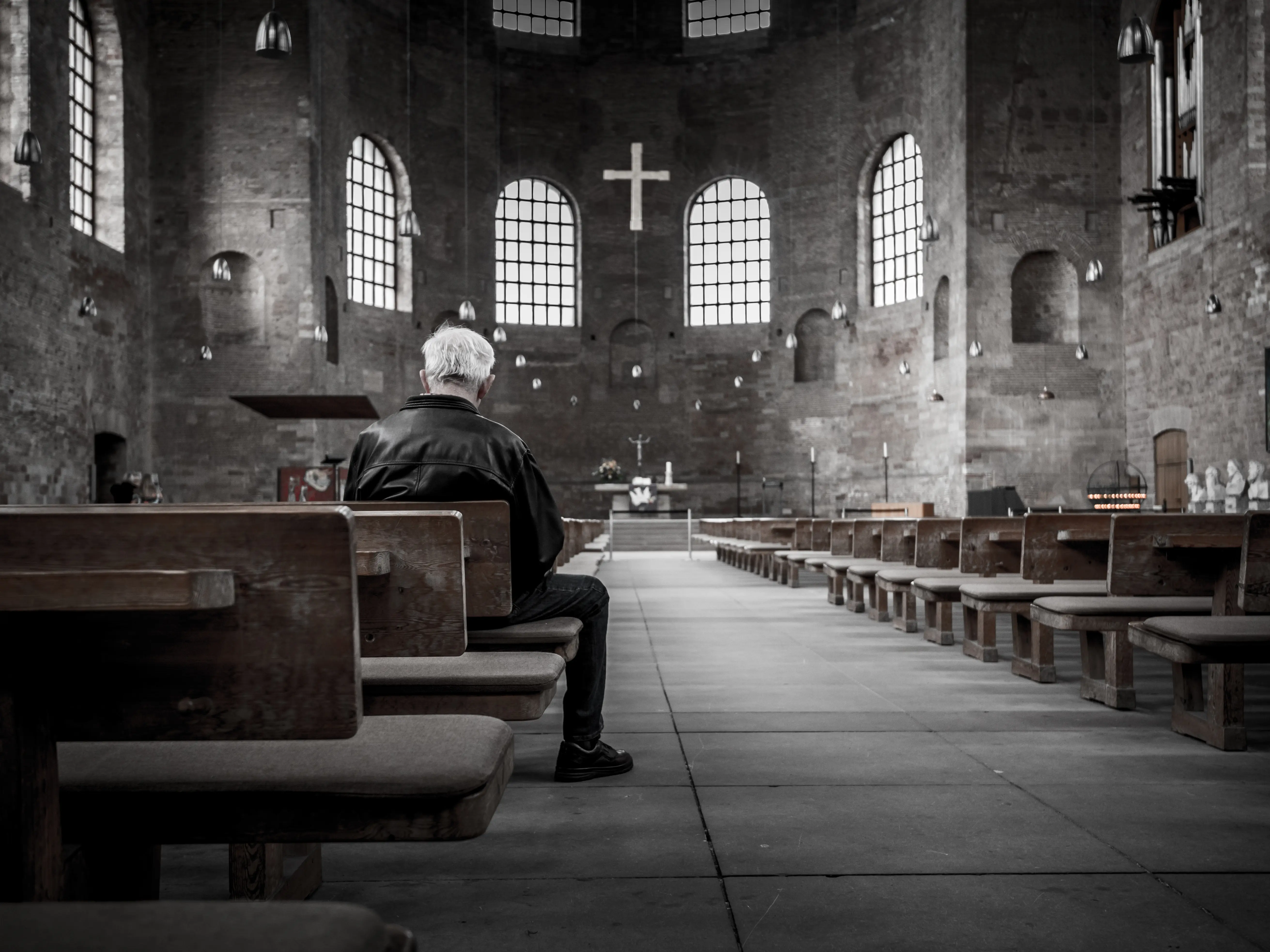
Ephesians 2:19-22, “Consequently, you are no longer foreigners and strangers, but fellow citizens with God’s people and also members of his household, built on the foundation of the apostles and prophets, with Christ Jesus himself as the chief cornerstone. In him the whole building is joined together and rises to become a holy temple in the Lord. And in him you too are being built together to become a dwelling in which God lives by his Spirit.”
Usually, in the spring, around the time of Pentecost, I do a series of sermons on the church. In the past three years I have preached Church 101, Church As…, and 7 Churches. This year I planned to do the same; my intent was to focus on the teachings about church in the book of Ephesians. My head, heart, and (I believe) God took me in a different direction and I a recently preached a series on our identity “in Christ” as described in Ephesians. The series is called Identity Theft.
Despite going a different direction for that sermon series, I didn’t want to ignore or neglect the beautiful teachings about the church that Paul offers us in Ephesians. So, over the next several posts I’m going to share my thoughts on church specific texts written in the book. You’ll notice a theme in the posts, even if just through their titles. The church is his (Jesus). It is his body, his bride, his household, his proclamation, and his glorifier. The church is a wonderful gift to us who are apart of it, but it ultimately exists to fulfill the purposes of Jesus and to bring him worship.
In my last post I laid out a few of the implications of the church being Jesus’ body. In Ephesians 2:19-22 Paul offers a completely different, yet still beautifully deep, metaphor. He says that Christians are members of Jesus’ “household.” GreatTreasures.org, one of the most helpful websites for Bible study on the internet, defines the Greek word that translated “household” as, “belonging to [a house], hence, family, kindred, friends, and relations.” Therefore, when Paul says that we are part of the “household of God,” he is saying that we are part of the family of God.
This metaphor may not come as a surprise, because language stemming from it is often used in church circles. Even if you’ve only been to church a handful of times you may have heard churches talk about being God’s children or referring to themselves as a “church family.” You may have noticed that Christians commonly call each other brothers or sisters. All of this is driven by the idea that we are part of God’s household – we are his family.
While the metaphor of church as God’s household is one that has saturated the language of the church, it sadly has not impacted the way most people think about and approach church life. If you have even a small notion of what a good/healthy family looks like, you ought to have understanding of how rich this metaphor is and how much it should positively effect the way church is done.[bra_blockquote align=’right’]While the metaphor of church as God’s household is one that has saturated the language of the church, it sadly has not impacted the way most people think about and approach church life.[/bra_blockquote]
Here are some things that come to mind: Church should be a place where people can find support during the difficulties they experience. Church should be full of people who willingly come to the aid of others in the congregation. Church should be a place where people can find love despite their flaws. Church should be a place where we find spiritual sisters, brothers, mothers, and fathers. Church should be a place where we all pitch in for the good of the group. Church should be a place where people are in it for the long haul.
Now, compare the list above to what you have experienced in church. It sometimes seems that the opposite is too often more true. Churches too often are places where people don’t find support or help, where people aren’t loved despite their flaws, where disunity springs up over small matters, where only a few people do most of the work, and where people leave over seemingly small infractions by others or differences of opinion on unimportant matters. It does seem that much of what is wrong with the church (or individual churches) stems from not remembering that it is Jesus’ household.
Currently my TV show of choice is Parenthood. Netflix describes the show this way, “Four grown siblings juggle parenthood, relationships, careers and more as they cope with life’s ups and downs in this family drama set in Berkeley, Calif.” In the show there is a scene that emphasizes the difference between family and other relationships. Her point, family forgives – family gets through the hard stuff and continues to be family. This reality should be demonstrated in church, but it too often is not.
Some of us though have experienced the incredibleness of a church that acts as family. It is incredible. In my church I have people that I can, in the deepest sense of the word, call brothers and sisters. Just this morning I received a text message from someone in my church with a quote connected to my sermon. I responded, “I will read this in a bit. I love you brother.” They responded, “I love you too dear Chadly.” The interaction was brief, but real. This is a friend, a brother, who I will never cease to have. We can disagree, be mad, and fight with each other, but we will always be connected in a relationship that allows for encouragement, help, accountability, and edification. And, this relationship isn’t driven by our similarities. We don’t have a ton of shared interests or hobbies. We don’t have similar jobs or backgrounds. Our brotherhood is based on our love for Jesus and our fight to serve him well.
[bra_blockquote align=”]If we want the church to feel like family, we must treat it like family.[/bra_blockquote]I think many people show up to churches looking for family. But, these types of relationship take time and effort. We must be committed to staying, for the long haul and no matter what. If we want the church to feel like family, we must treat it like family. We must be committed. We must help. We must contribute. We must show up and take part. We must invest. When we do these things, we begin to sense the familial nature of church.I am part of a tight nit family. I’m often moved to tears when I think about all of our shared experiences, good and bad. Through the years I have told my wife many times that when we first got married she didn’t instantly feel like part of my family. I loved her and cared about her, but we didn’t have enough history for me to feel like she had entered into my inner circle – my family. In the past six years this has changed, nobody is more my family than her. In that time we have been together through fights, miscarriages, car problems, sickness, work failures, and death of loved ones. I now can’t imagine life without her – she is family.
I want to close with a quote from writer Jeff Kluger, because I believe it can be true of our church relationships if we commit to taking seriously church as God’s family:
“There may be no relationship that’s closer, finer, harder, sweeter, happier, sadder, more filled with joy or fraught with woe, than the relationship we have with our brothers and sisters. The idea is that your parents come along at the beginning of your life and leave it too early. Your spouse and your children come along much later in your life but your siblings are the only people who are with you through the entire ride, potentially from cradle to grave. We’re clay when we first meet our siblings. We’re pretty much, you know, set and kiln fired by the time we meet our spouses and a lot of our friends. But our siblings shape us. We learn from our siblings. We learn about mentoring, we learn about honesty, caring, confidence. We learn about loyalty, keeping confidence. We learn about conflict avoidance, guilt and compromise, gentleness, caring, empathy, love.”
